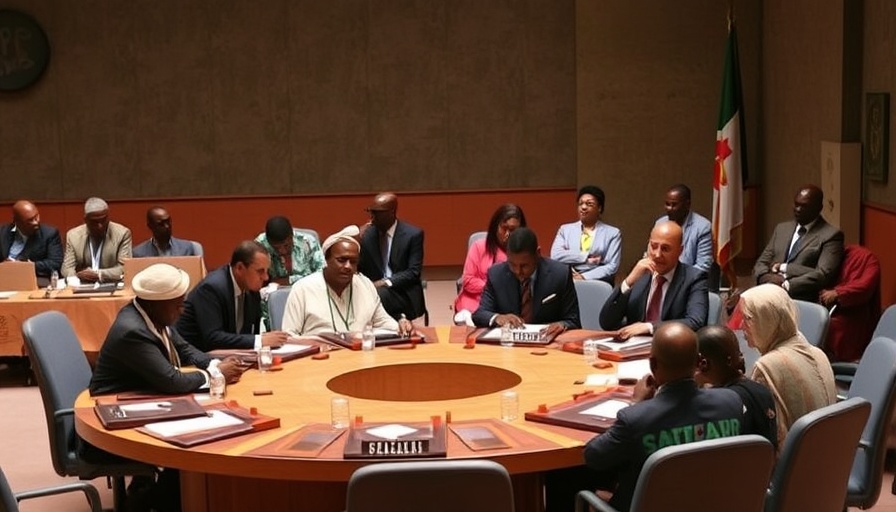
Security Council's Deadlock: A Threat to Stability in Somalia
The ongoing impasse within the United Nations Security Council regarding the African Union (AU) mission in Somalia has raised serious concerns about the stability of the region. The mission, crucial for aiding Somali forces in combatting the militant group al-Shabaab, now hangs in uncertainty amidst diplomatic disagreements among member states. The significance of this mission extends beyond Somalia itself; its implications ripple through the socio-economic landscape of East Africa, affecting trade dynamics and regional security.
Geopolitical Stakes: U.S. and China's Competing Interests
The geopolitical tug-of-war between major powers like the United States and China complicates the situation further. For instance, the U.S. has traditionally supported initiatives against terrorism in the region, emphasizing a cooperative approach with African governments. Conversely, China's growing investment in East Africa, particularly through infrastructure projects under the Belt and Road Initiative, poses a different kind of influence. This divergence illustrates how actions taken—or not taken—within the Security Council will impact foreign relations and economic partnerships critical to the wider African economy.
The Broad Economic Implications
The AU mission's fate directly impacts the stability required for foreign investments. Business leaders and investors are keenly observing how the political landscape unfolds. Economic opportunities in Somalia, influenced greatly by the security situation, are at stake. An effective AU presence could foster a more favorable environment for global trade and investment, vital components in revitalizing Somalia’s economy. Should the mission falter due to the Council's inability to agree, it may deter potential investments and stall economic progress across the region.
Short-term Effects vs. Long-term Implications
The immediate ramifications of this deadlock may include increased violence and destabilization within Somalia, leading to a humanitarian crisis. However, the long-term effects could be even more profound, potentially altering the power balance in East Africa. Countries like Ethiopia and Kenya, already grappling with their issues, could face spillover violence, impacting their economic condition. Consequently, the international community must heed the urgent call for decisive action, lest the repercussions escalate beyond Somalia's borders.
In conclusion, as the international community watches the unfolding situation, it becomes increasingly essential for stakeholders across the board to advocate for a renewed commitment to security and stability in Somalia. Only through unity and proactive measures can the region hope to harness its potential and establish itself as a robust participant in global trade.
 Add Row
Add Row  Add
Add 


 Add Row
Add Row  Add
Add 

Write A Comment